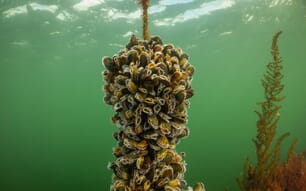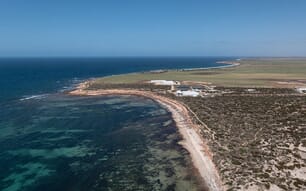Currently, over-fishing and destruction of important marine areas are threatening the global supply of fish. Reforming fishing practices in these countries will revitalise seven per cent of the world’s fisheries and will potentially serve as a model for future global reform efforts by providing insights into the best ways to protect the world’s fish supply.
The grant is also the largest philanthropic commitment to internationally reform fisheries management to date and is the first time that a private capital financing strategy will be integrated into such a reform effort.
“At Bloomberg Philanthropies, we look for opportunities to address unmet needs with proven solutions that improve the greatest number of lives. While billions of people depend on fish for food or income, only 13 per cent of the world’s fisheries are safe from being over-fished, presenting serious environmental and public health challenges,” said Michael R. Bloomberg, philanthropist and 108th Mayor of New York City.
“Data shows the world’s severely threatened fish populations can rebound if fishing is properly managed. The investment we are making now will help bring more life back to our oceans – and protect them for future generations.”
“If we don’t act now to protect our world’s oceans from over-fishing, we risk jeopardising a vital source of food and income for billions of people – and permanently damaging a marine ecosystem that sustains so many species, including our own,” says Paul Greenberg author of the New York Times bestseller Four Fish and the forthcoming American Catch.
“Even though we are fishing more and using advanced technologies, the amount of fish caught has declined nearly eight per cent since the 1990s and demand for fish is projected to rise 20 per cent by 2030.”
To revitalise the world’s declining supply of fish, the Vibrant Oceans initiative is applying a groundbreaking approach to fisheries management. It is the first effort to simultaneously target small scale, near-shore fishing (within 10 nautical miles of shore) and industrial, far-shore fishing (which takes place in the next 190 nautical miles). While both kinds of fisheries are largely depleted and in need of reform, previous efforts to reform fishing generally concentrated on one or the other.
Bloomberg Philanthropies selected three best-in-class partners with distinct areas of expertise to introduce the Vibrant Oceans initiative’s comprehensive strategy:
- Oceana, the largest international organization working solely on protecting oceans, will focus on reforming industrial fishing by advocating for national policies such as setting and enforcing reasonable catch-limits, and reducing the amount of sea life that is unintentionally caught and discarded.
- Rare, a non-profit with 40 years of experience working with local communities to solve environmental problems, will engage coastal communities to implement management systems that are led by local fishers. The management systems will include exclusive fishing rights for near-shore fishers along with the creation and strengthening of protected areas within those fisheries where fish can reproduce unharmed.
- EKO Asset Management, a specialised investment and advisory firm focused on discovering and monetizing unrealised or unrecognised environmental assets, will develop investment blueprints that can bring private capital to financially reward local fishers and industrial fleets transitioning to sustainable fishing practices.


